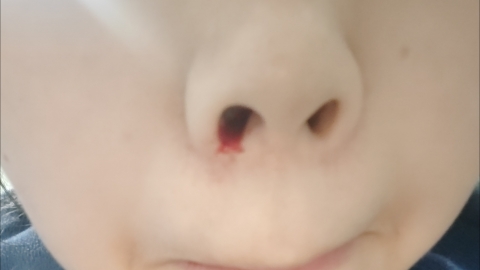Is sudden nosebleed a symptom of leukemia?
In general, sudden nosebleeds are not necessarily a sign of leukemia and could be caused by other factors. If discomfort occurs, it is recommended to seek timely diagnosis and treatment at a qualified hospital. Detailed analysis is as follows:

Sudden nosebleeds are not necessarily caused by leukemia. In many cases, they result from other common causes. For example, when the nasal mucosa becomes dry, small blood vessels beneath the mucosa are more prone to rupture and bleeding, which is commonly seen during dry seasons or in individuals spending prolonged time in air-conditioned environments. Trauma from external impact to the nose or mechanical injuries such as nose picking can also directly cause blood vessel rupture and lead to nosebleeds. Additionally, local nasal inflammation such as rhinitis or sinusitis can cause the nasal mucosa to become congested and swollen, making it prone to bleeding when slightly stimulated. Certain systemic factors, such as sudden increases in blood pressure among patients with hypertension, can also cause nosebleeds. Nosebleeds caused by these reasons usually subside after simple measures such as applying pressure to stop the bleeding and are typically occasional, without accompanying systemic symptoms.
Of course, sudden nosebleeds can also be caused by leukemia, although this is relatively rare. Leukemia is a malignant clonal disease of hematopoietic stem cells. Patients often have abnormal bone marrow hematopoiesis, reduced platelet count or impaired platelet function, leading to compromised blood clotting and a tendency to bleed, including nosebleeds. However, nosebleeds caused by leukemia tend to be frequent and difficult to stop. They may also be accompanied by bleeding in other areas, such as gum bleeding, skin bruising, or blood in the stool. Additionally, symptoms such as fever, fatigue, and pallor may also be present. If nosebleeds occur together with these symptoms, leukemia should be suspected and prompt medical evaluation is necessary.
When experiencing a nosebleed, do not panic. Keep the head slightly forward, use fingers to pinch both sides of the nostrils, and apply continuous pressure for 5–10 minutes to stop the bleeding. Avoid tilting the head backward, as this may cause blood to flow into the throat and cause discomfort. During the process of stopping the bleeding, try to avoid coughing forcefully, sneezing, or blowing the nose, as these actions may trigger re-bleeding.




